10 Search Engine Alternatives to Google: Discover Unique Options for Your Search Needs
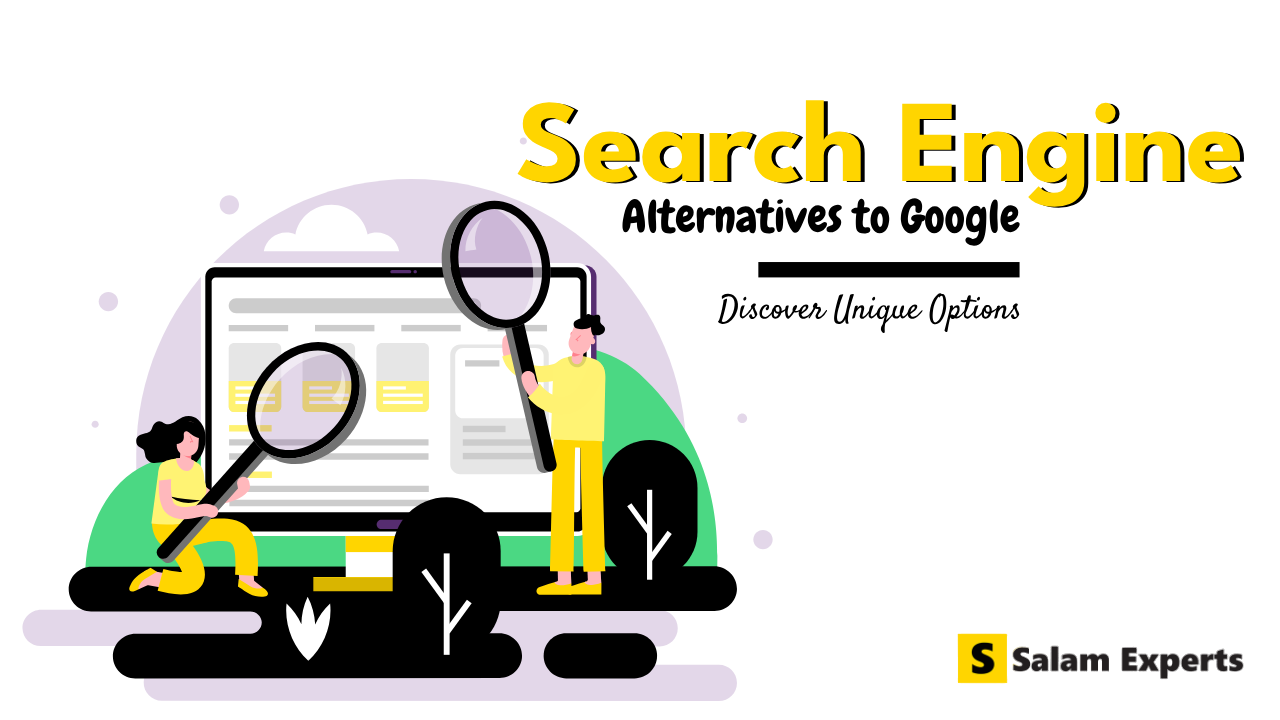
In the world of online search, Google reigns supreme, holding over 91% of the market share. Yet, Google isn’t the only option available for finding information online. Whether you’re concerned about privacy, looking for specialized search results, or interested in innovative AI-driven search experiences, there are plenty of alternatives that might better suit your needs. In this article, we explore 10 search engines that offer unique features, prioritize your privacy, or focus on specific niches that Google might overlook.
Search Engine Alternatives
We’ve categorized these search engines into three main groups to help you find the one that fits your needs best:
- Privacy-Focused
- AI-Powered
- Environmentally-Conscious
Privacy-Focused Search Engines
1. DuckDuckGo
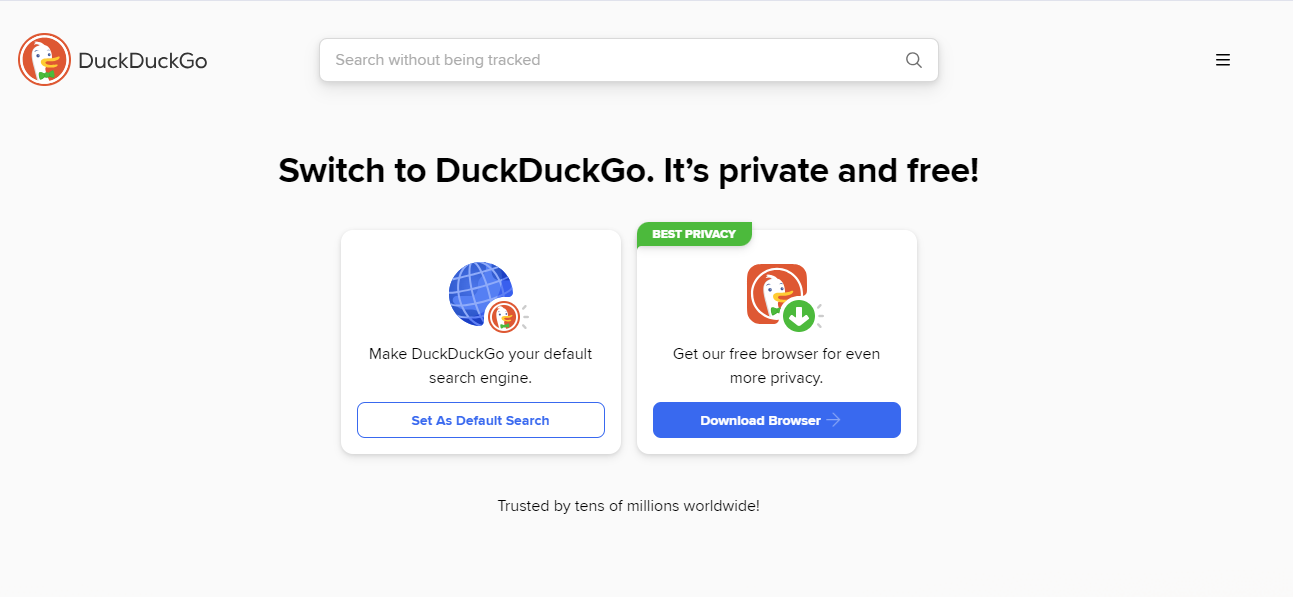
DuckDuckGo is the go-to search engine for users who prioritize privacy. It doesn’t track your search history, store personal data, or use targeted advertising.
| Pros | Cons |
|---|---|
| No user tracking. | Relies on Bing for some search results. |
| Simple, clean interface. | Use Case: Ideal for privacy-conscious users who want a search engine that doesn’t compromise on quality. |
| Bang syntax for direct site searches. |
2. Startpage
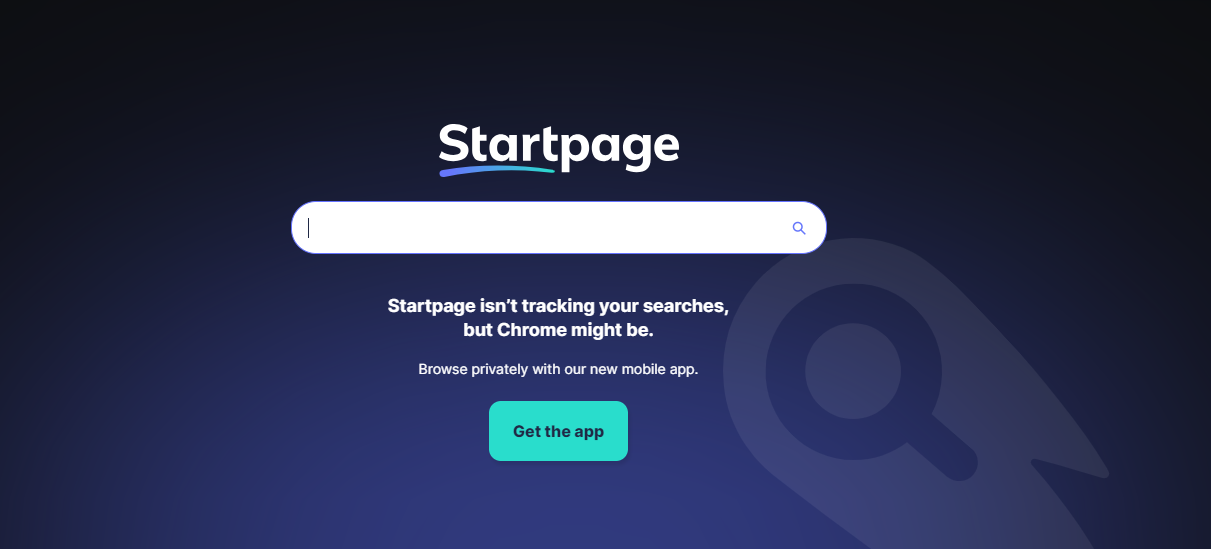
Startpage fetches Google’s search results but strips away any personal identifiers, offering Google’s power without the privacy concerns.
| Pros | Cons |
|---|---|
| Access to Google search results without tracking. | Fewer features compared to Google. |
| Built-in proxy service for anonymous browsing. | Use Case: Perfect for those who love Google’s accuracy but not its data collection practices. |
3. Qwant
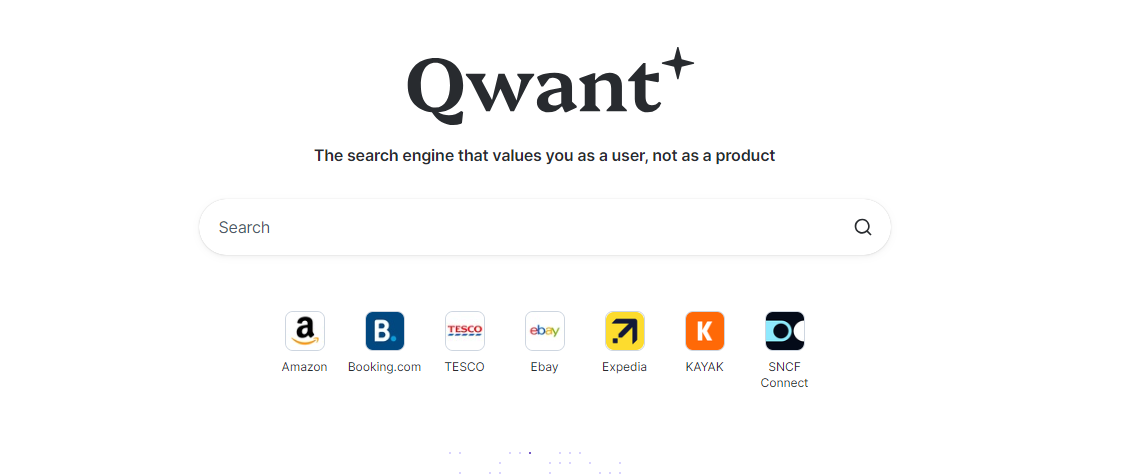
Qwant is a European search engine that emphasizes user privacy and neutrality, avoiding the filter bubble effect of personalized search results.
| Pros | Cons |
|---|---|
| No tracking or profiling. | Limited to European and global searches. |
| Neutral search results. | Use Case: Best for users who want unbiased search results and strong privacy protections. |
4. Swisscows

Swisscows is a family-friendly search engine that focuses on privacy, offering encrypted searches and a strong emphasis on security.
| Pros | Cons |
|---|---|
| No user tracking. | Limited to certain regions. |
| Family-friendly content filters. | Use Case: Ideal for families and users looking for a secure, privacy-oriented search experience. |
5. Mojeek
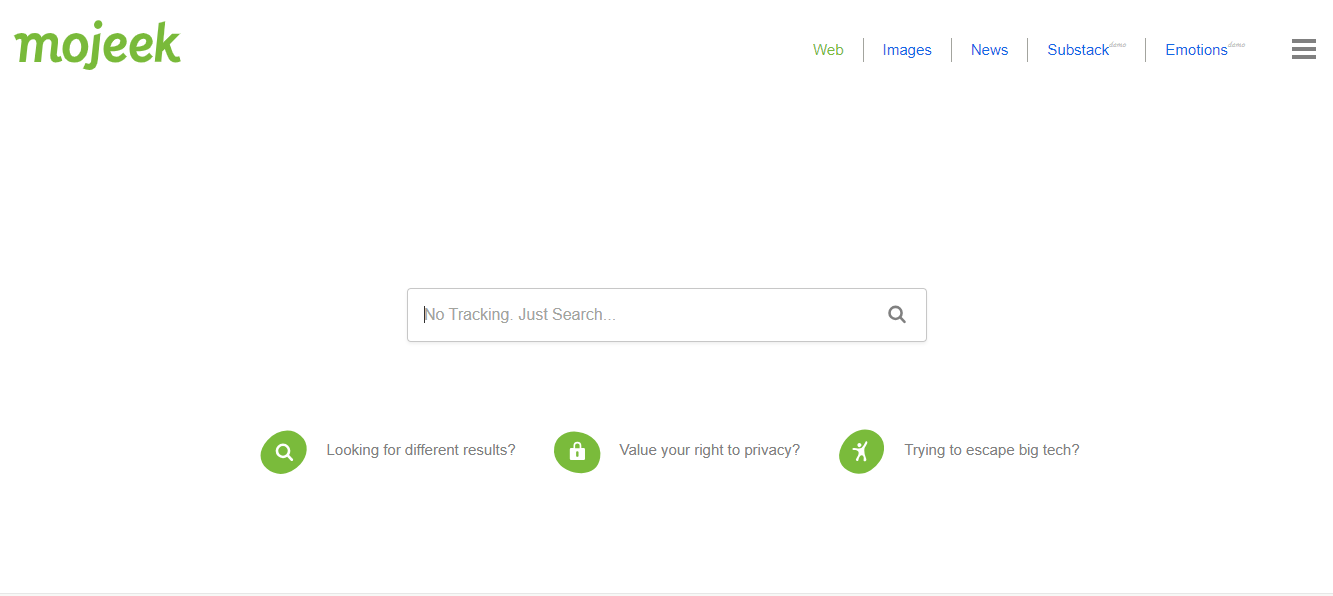
Mojeek is an independent search engine that builds its own index of the web, focusing on privacy without relying on third-party providers.
| Pros | Cons |
|---|---|
| Independent search index. | Smaller index compared to major search engines. |
| No user tracking or profiling. | Use Case: Best for users who want a truly independent and private search experience. |
AI-Powered Search Engines
6. WolframAlph
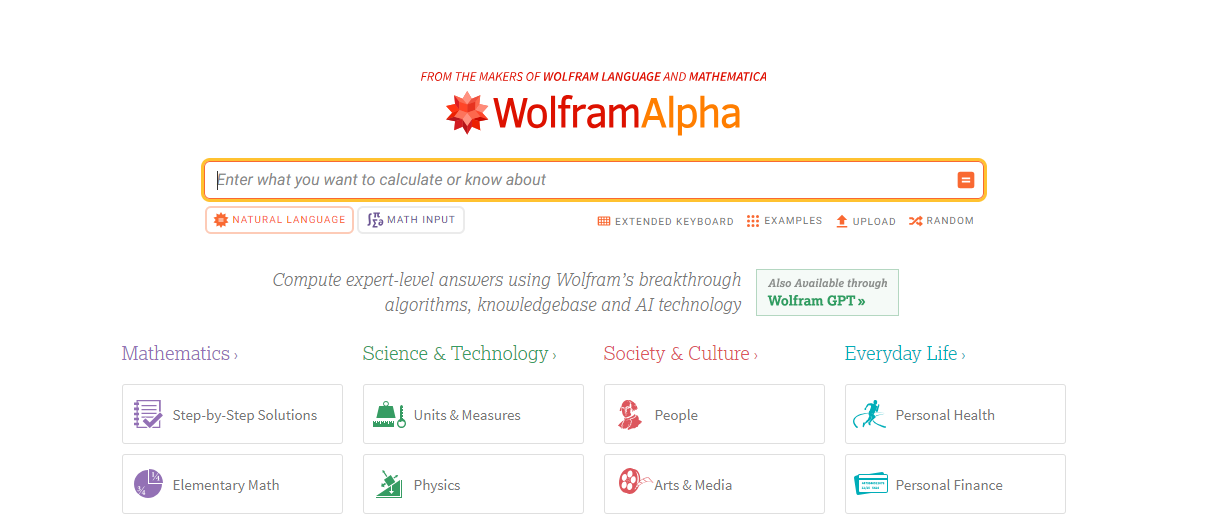
WolframAlpha is a computational search engine that answers queries based on structured data, making it ideal for research and academic purposes.
| Pros | Cons |
|---|---|
| Powerful computational capabilities. | Limited to factual queries. |
| Detailed, data-driven answers. | Use Case: Ideal for researchers, students, and professionals who need precise, data-centric answers. |
Environmentally-Conscious Search Engines
7. Ecosia
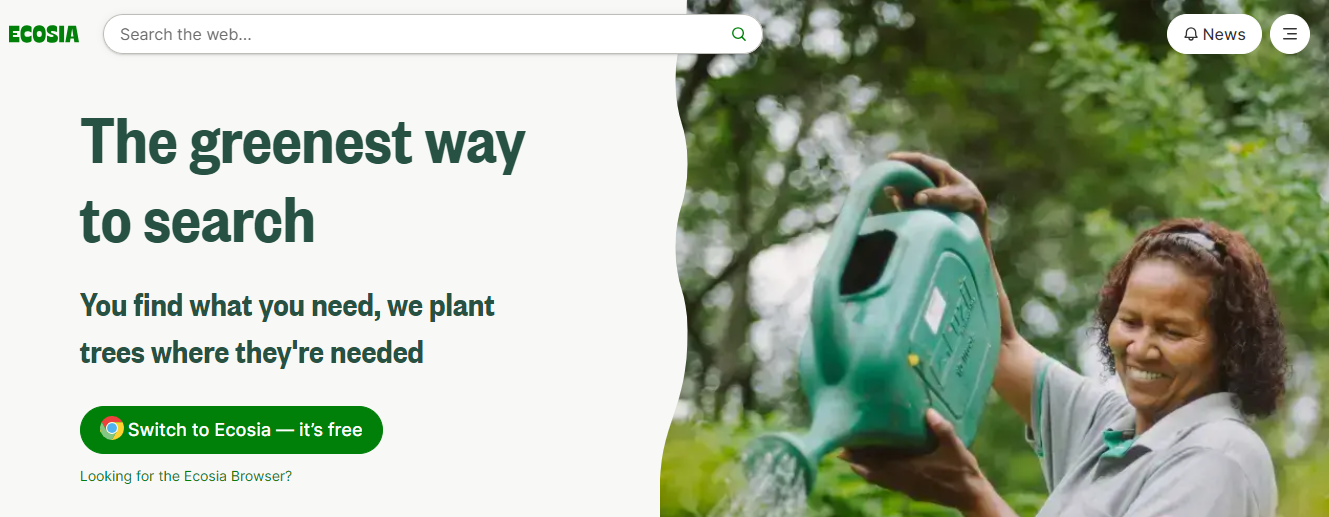
Ecosia is a search engine that plants trees with its ad revenue, making it a great choice for eco-conscious users.
| Pros | Cons |
|---|---|
| Supports global reforestation efforts. | Search results are sometimes less accurate than Google’s. |
| Transparent financial reports. | Use Case: Ideal for users who want their web searches to have a positive environmental impact. |
8. Ekoru
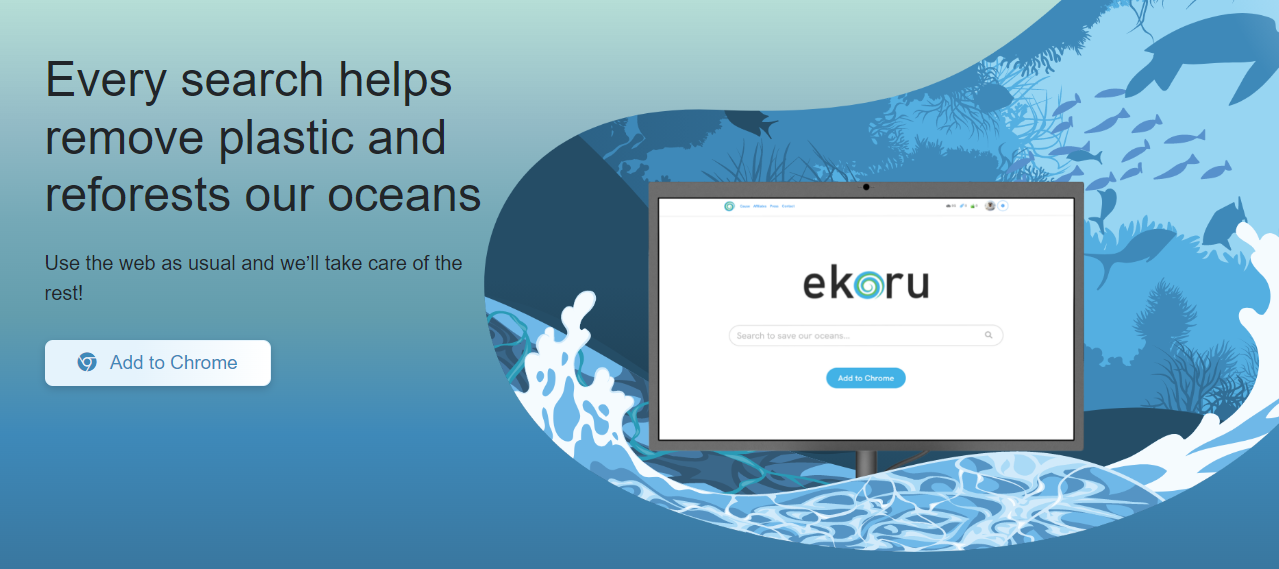
Ekoru focuses on ocean conservation, donating a portion of its revenue to organizations working to protect marine life.
| Pros | Cons |
|---|---|
| Supports ocean conservation. | Limited to environmental topics. |
| Eco-friendly data centers. | Use Case: Best for users passionate about marine conservation and sustainability. |
9. GiveWater
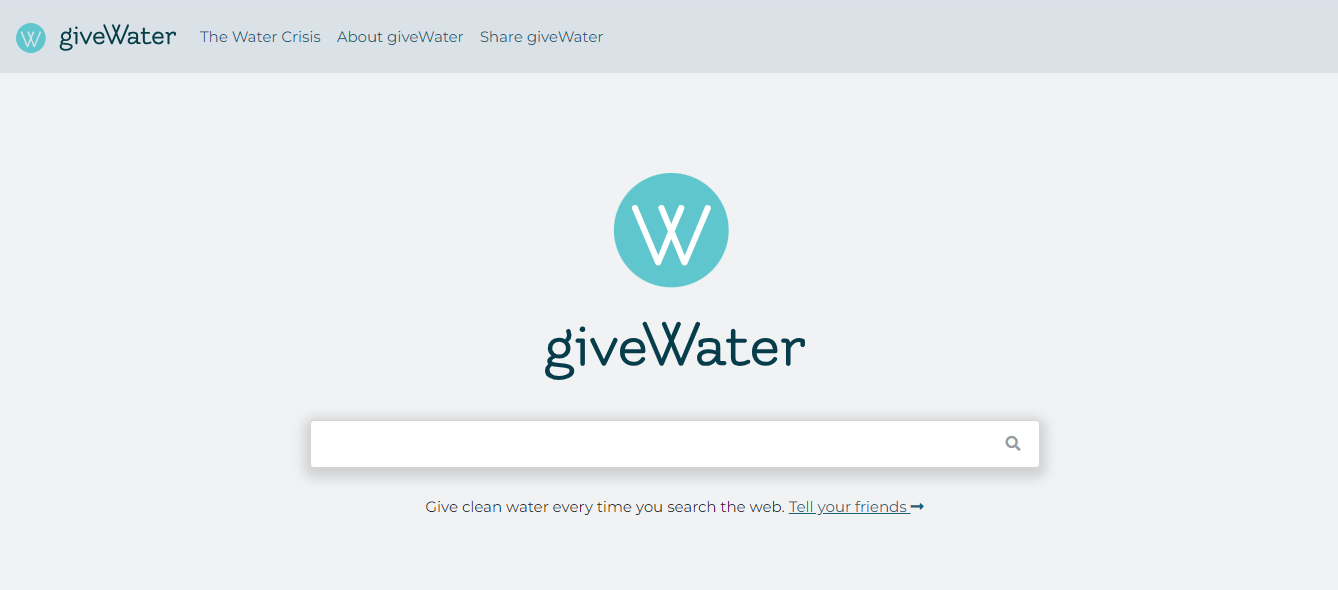
GiveWater uses its search ad revenue to fund clean water projects in developing countries.
| Pros | Cons |
|---|---|
| Supports clean water initiatives. | Smaller database than Google. |
| Simple, user-friendly interface. | Use Case: Ideal for users who want to support humanitarian causes with their searches. |
10. OceanHero
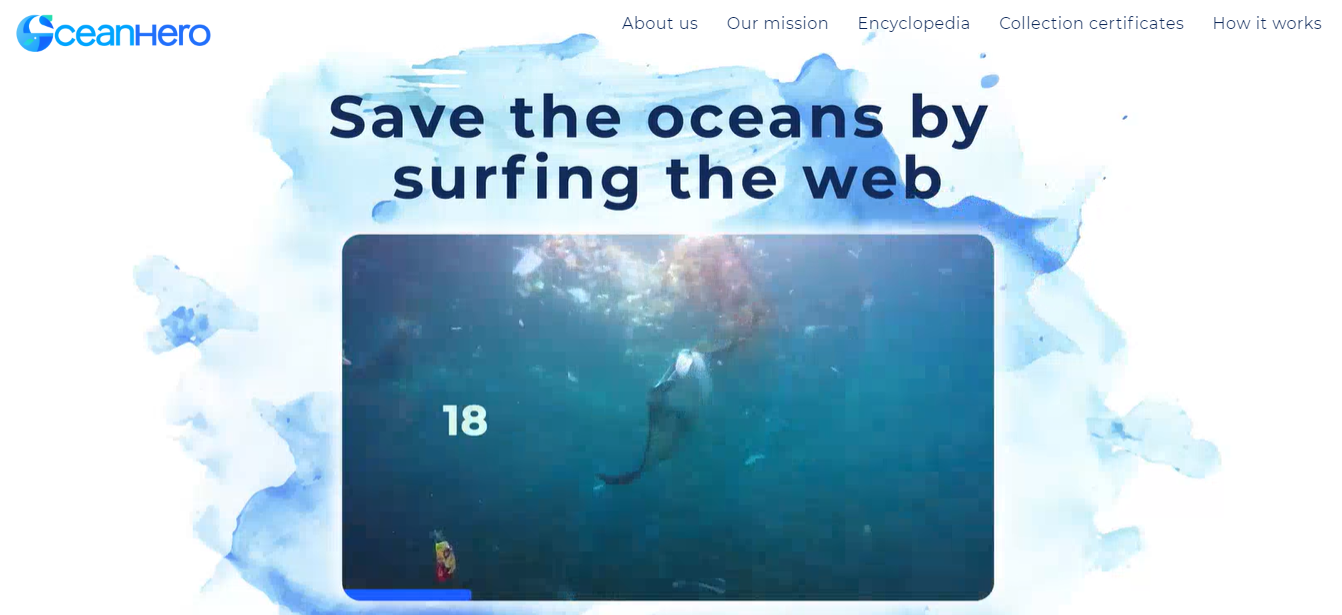
OceanHero is a search engine that helps remove plastic from the ocean with every search, turning your searches into environmental action.
| Pros | Cons |
|---|---|
| Supports ocean clean-up efforts. | Smaller search index. |
| Transparent impact tracking. | Use Case: Best for users who want to contribute to ocean preservation through their daily online activities. |
Comparison Table: Key Features and Market Share
| Search Engine | Privacy Features | AI Capabilities | Market Share | Unique Selling Point | Link |
|---|---|---|---|---|---|
| Ekoru | High | Moderate | <0.1% | Focuses on environmental sustainability | Ekoru |
| GiveWater | Moderate | Low | <0.1% | Supports clean water initiatives | GiveWaer |
| Ecosia | Low | Low | 0.1% | Plants trees with search revenue | Ecosia |
| Neeva | High | Moderate | <0.1% | Ad-free, subscription-based service | Neeva |
| You.com | High | High | N/A | Customizable interface | You.com |
| Perplexity AI | Moderate | High | <0.1% | AI-generated answers | Perplexity AI |
| Qwant | High | Moderate | 0.1% | Privacy-focused with categorized results | Qwant |
| Startpage | High | Low | 0.1% | Google results without tracking | Startpage |
| DuckDuckGo | High | Low | 0.69% | No tracking | DuckDuckGo |
| Swisscows | High | Low | <0.1% | Family-friendly with strong privacy | Swisscows |
| Mojeek | High | Low | <0.1% | Independent search index with no tracking | Mojeek |
| Andi | Moderate | High | N/A | AI-driven search with minimal distractions | Andi |
| WolframAlpha | Low | High | N/A | Computational search for data-driven queries | WolframAlpha |
| OceanHero | Low | Low | <0.1% | Removes plastic from oceans with each search | OceanHero |
Conclusion
Exploring alternatives to Google can unlock new possibilities for your search experience. Whether you’re looking for enhanced privacy, AI-driven results, or a way to contribute to environmental causes, these 14 search engines offer a variety of benefits tailored to different user needs. By diversifying your search engine use, you not only gain more control over your online experience but also support causes that align with your values.
For those seeking a more personalized, private, or eco-friendly search experience, trying out these alternatives might just be the refreshing change you need.





